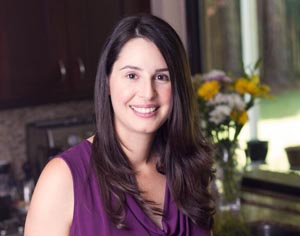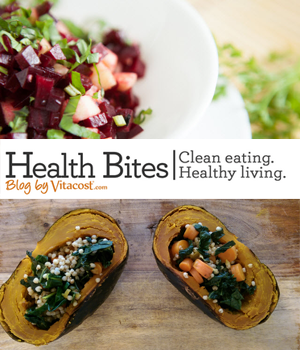Sip Smart: A Guide to Specialty Coffees and Teas
These days there are so many different choices when it comes to coffee and tea. What flavor is the best, should you get organic, fair trade, herbal?? Here to clear the air is Vitacost.com to the rescue with a guest post from Rebecca Chopin. Thank you again for a wonderful and informative post!!
Guest blog post: coffee/tea, Rebecca Chopin
———————————————————–
Buying coffee used to be simple. You’d pick regular or decaf, with your biggest worry being which big-name brand—Folgers, Maxwell House, or Hills Brothers—tasted best. Tea was even easier. Lipton for hot; Nestea for iced.
Now, you’re lucky if you exit the coffee-tea aisle without a headache bigger than the one you’d get if you skipped the hot, caffeinated beverage altogether. Beans, grounds, freeze-dried crystals, pods, K-cups, loose leaves, bags, powders—these are merely delivery methods for coffee and tea today. What kind to sip is a whole ‘nother struggle.
Specialty coffees and teas have soared in popularity over the past few years, with the “gourmet,” exquisitely flavored varieties that once dominated the category now representing just a part of it. To keep up with trendy coffee house menus, and to satisfy the ever-more-selective palates of home brewers, manufacturers continue to roll out new specialty coffee and tea products.
Here’s a guide to some you’ll find on grocery store shelves:
Organic Coffee
Unless you’re a coffee fanatic, you probably don’t give much thought to the origins of the beans used to brew your morning cup. And as you sip that rich, black liquid, chances are slim you’ll consider it came from a plant. But coffee beans, which are technically seeds, are extracted from the berries of a small, perennial bush that grows in tropical and subtropical regions around the world.
In the lush, hot climate where coffee plants thrive, insects abound, making it necessary for farmers to use pesticides or other means of control. Although coffee is the third most chemically treated crop in the world (after cotton and tobacco), an increasing number of growers are moving toward organic agriculture.
Organic coffee beans are grown without the use of chemical-based pesticides or fertilizers, a practice that’s not only safer for the environment but produces a cleaner, healthier beverage for you. Look for the USDA Organic Certified logo on labels, and be prepared to pay a little extra, as organic coffee is more expensive to produce.
Fair Trade Coffee
Growing and harvesting coffee beans is hard work, especially on small, organic farms where plants require vigilant care. When you buy fair trade coffee, you help to support the people who dedicate their lives to bringing better beans to your grinder.
Put simply, fair trade certification is a guarantee that coffee farmers receive fair prices for their beans—allowing them to better support their employees and their own families. Fair trade revenues may also be used to support community projects, such as building schools.
Shade Grown Coffee
Until about 35 years ago, “in the shade” was the only way coffee was grown. But hybrid plants that flourished in full sun—and yielded more coffee beans—were developed in the 1970s, resulting in farmers clearing away patches of rainforest to make way for these new-and-improved crops.
Besides negatively affecting the environment, tearing down trees interferes with the natural habitat of wildlife living in the forests. When you see “shade grown” on a coffee label today, it means the coffee plants were raised under a natural canopy of native trees—keeping birds where they belong, and preserving the biodiversity of the area. Shade-grown coffee is said to have a smoother, richer taste than full-sun varieties.
Estate Teas
Ready to take tea drinking beyond ordinary herbal blends? Single estate teas are considered the “champagne” of teas—respected in a way similar to fine, estate wines. As the name suggests, “single estate” means this type of tea comes from a single tea plantation. Common teas, like those found in supermarkets, often contain a blend of tea leaves from many different gardens (and even countries).
Single estate teas are known for their distinct “personalities,” with flavors reflecting the unique properties of the regions and individual plantations where the teas are grown. Their taste may vary from season to season, batch to batch, depending on factors such as weather and soil conditions. But this is what makes them special, and ups their cost significantly over other types of teas.
Medicinal Teas
Since the earliest of times, tea has been used to support health and longevity. Today it’s still a go-to natural solution for everything from a tickle in the throat to an upset stomach.
Next to boxes of “regular” herbal teas, you may see blends specifically designated for energy, relaxation, weight loss, digestive comfort and more. These teas are typically made from single or carefully blended herbs that have been used traditionally to support health. While they may offer some relief, medicinal teas aren’t intended to treat serious health issues. Always consult with a healthcare professional if you have specific concerns.
This article has been provided by the folks at Vitacost.com. Vitacost.com has been selling discount vitamins since 1994. Since then it’s grown into one of the biggest online marketplaces for healthy living essentials-with vitamins and supplements such as green coffee bean extract . Get the best price on vitamins, nutritional supplements, whole foods and healthy diet products. Vitacost.com’s customers mean the world to them, and it’s their goal to provide you with the best nutritional supplements, natural foods and sports nutrition to help with your health and wellness. Vitacost.com is not affiliated with this blog, and isn’t responsible for content outside of this article.
By: +Rebecca Chopin writer for Vitacost.com


